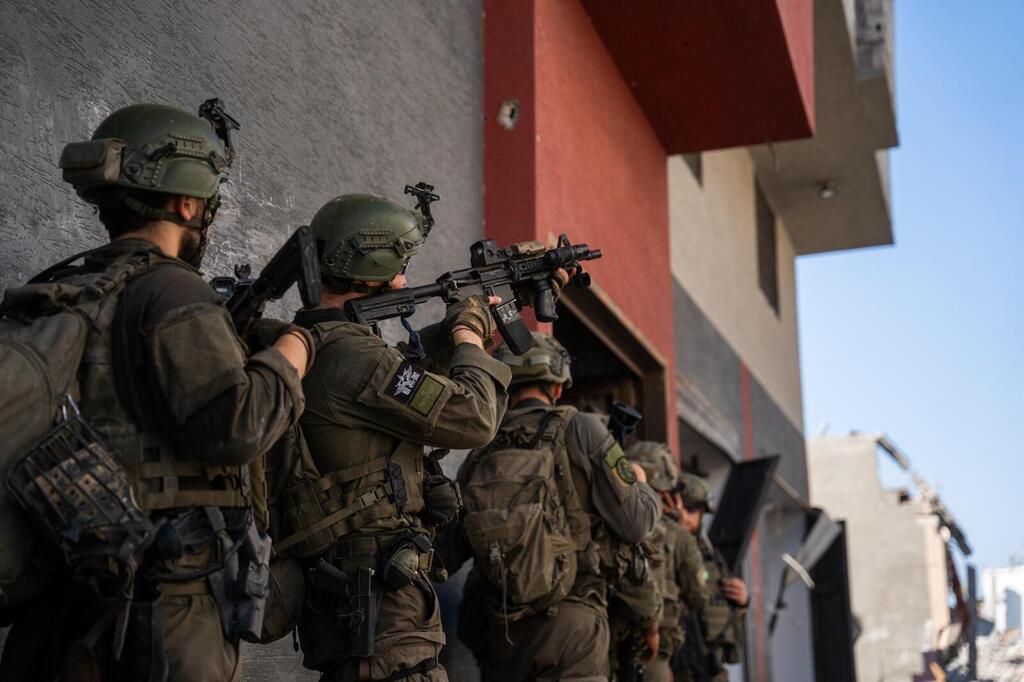Getting your Trinity Audio player ready...
"If we have to stand alone, we will stand alone. If necessary, we will fight tooth and nail," declared Prime Minister Benjamin Netanyahu two months ago in a video filmed against the backdrop of escalating disagreements between the Israeli government and the U.S. administration under President Joe Biden. A month later, Netanyahu upped the ante and made what had been said behind closed doors public.
"It is unacceptable that the U.S. is delaying arms shipments to Israel," he proclaimed in English in a video posted on social media.
While the complex relations with the Americans regarding aid to Israel are capturing most of the public's attention, the Defense Ministry and the IDF are currently more concerned about a different developing reality: the possibility of a munitions shortage after several countries around the world have informally ceased trading with Israel.
Calcalist has learned that weapons suppliers from European countries have simply stopped responding to their Israeli counterparts, and a foreign power that is not the U.S., which previously traded with Israel, has refused to supply Israel with raw materials for ammunition production since October 7.
According to a report by The New York Times, the IDF is facing a shortage of 120mm shells for tanks to the extent that some tanks stationed in Gaza are now on partial alert and carrying fewer shells to reserve them for potential escalation on the northern front. Calcalist has learned from senior IDF officials that a "munitions economy" is indeed being managed. The New York Times reported that the military is also dealing with shortages of spare parts for tanks, D9 bulldozers, armored vehicles and additional light ground ammunition.
The main solution that the defense establishment is promoting concerning the ammunition shortage is the advancement of the local industry and reducing reliance on imported shells and ammunition from foreign countries. This move is expected to positively impact the Israeli defense industry but will also have negative economic consequences: ammunition produced in Israel is considered tens of percents more expensive than what can be imported from abroad, and establishing and maintaining "simple" munitions factories that produce, for example, artillery and tank shells is particularly costly. There are also other implications: among other things, this need is expected to delay the evacuation of the Israel Aerospace Industry site in Ramat Hasharon to allow Elbit to continue producing ammunition there, as reported a month and a half ago in Calcalist.
Despite the understandable effort to strengthen local industry and thereby reduce dependence on the external factors, those who believe that Israel can produce all the ammunition in-house it needs are likely to be disillusioned. First of all, even in the case of a massive increase in Israeli production capacity, a significant portion of the ammunition will still have to come from foreign countries in any scenario due to limited production potential. Even the U.S. is currently struggling to supply itself and its allies, including Israel and Ukraine, with all the shells they need. Secondly, for Israeli defense industries to produce large quantities of weapons materials, a large amount of raw materials is required, which cannot be mined in Israel, so shipments from abroad are not optional, they're mandatory.
Besides the unofficial embargo imposed by some suppliers on the sale of ammunition to Israel, Calcalist has learned that key suppliers of raw materials for bomb production have also stopped selling to Israel since the outbreak of the war. The defense establishment's solution to this embargo is diversifying suppliers, purchasing stocks of raw materials in advance for future bomb production, and creating large reserves of raw materials in Israel. The fact that the IDF and the Defense Ministry are directly involved in this issue is unusual, since in the past, defense industries took care of supplying themselves with raw materials without direct intervention from the military and political echelons.
Since the outbreak of the war, there have been increasing reports of countries and companies wanting to reduce or restrict defense trade with Israel. There also have been reports of problems with the supply of F-35 spare parts from Dutch suppliers; the governments of Italy, Canada and Belgium announced a halt to defense exports to Israel (despite reports of shipments continuing and deals still being signed); and the Spanish government even prevented a ship carrying a weapons shipment from India to Israel from docking at its ports.
The shipment, which was prevented from stopping at the Spanish port of Cartagena, contained 27 tons of explosives from India, according to foreign media reports. This case illustrates Israel's strategy of diversifying sources: India, which is the number one importer of Israeli defense exports, has now also become a supplier of defense raw materials and even weapons systems to Israel.
On a more positive note, Calcalist has learned that another country has begun selling raw materials used by the Israeli defense industry and, according to other media reports, it is none other than Serbia that has provided an airlift of military supplies to Israel since the outbreak of the war.
Aside from the political context that complicates the defense establishment's efforts regarding defense imports, there is also a global economic context. The increased use of ammunition in the wars in Gaza and Ukraine has led to an unusual global shortage of ammunition of all types, resulting in rising prices and increased competition among countries for ammunition and raw materials.
As early as January, Calcalist reported that the IDF had to manage the pace of bombings due to the global shortage and the intensive use of ammunition at the beginning of the operation. In late November, less than two months after the war began, the IDF announced that the Artillery Corps had used more than 100,000 shells.



